Stuart Aken's Blog, page 284
October 27, 2011
Author Interview with Jeannie Walker
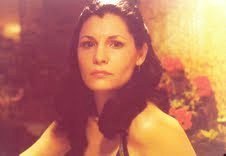 Jeannie Walker is an Award Winning Author, Award Winning Songwriterand freelance writer. She studied creative writing in New York and Connecticutand is a member of the International Association of Writers. She became areal-life Sherlock Holmes to help solve her ex-husband's murder. She is an avidreader of mystery novels, and the wife of a murdered Texas millionaire, forwhom she wrote, "Fighting the Devil". Jeannie Walker's debutnovel, the true crime story, "Fighting the Devil" is a 2010 BOOK OFTHE YEAR SILVER AWARDS WINNER in True Crime & 2011 National Indie Excellence Awards
Jeannie Walker is an Award Winning Author, Award Winning Songwriterand freelance writer. She studied creative writing in New York and Connecticutand is a member of the International Association of Writers. She became areal-life Sherlock Holmes to help solve her ex-husband's murder. She is an avidreader of mystery novels, and the wife of a murdered Texas millionaire, forwhom she wrote, "Fighting the Devil". Jeannie Walker's debutnovel, the true crime story, "Fighting the Devil" is a 2010 BOOK OFTHE YEAR SILVER AWARDS WINNER in True Crime & 2011 National Indie Excellence AwardsHello Jeannie, please tell us about you, as awriter.
I write because Ilove it. I write because I believe in truth and justice. I write because I wantto reach human beings and tell them to keep trying and to do all they can,because in the end it is worth it, and to let everyone know we are not alone inour struggle. I grew up in rural Oklahoma and later Texas. Most of thereading and writing I did was in school. Growing up on a farm didn't leave alot of time for anything else except tending to farm animals, feeding andwatering the chickens, gathering the eggs, milking the cows, and feeding thepigs. Then there was harvest time when the entire family had to pull cotton,combine wheat, and bale hay. Any spare time I got, I spent outside sittingunder a big oak tree enjoying nature and reading a good book. My Englishteacher at Lone Wolf, Oklahoma was a big influence in my life. Mrs. Schreinerencouraged all her students to excel in reading and writing. I worked hard toachieve excellence and make straight A's because of the respect I had for Mrs.Schreiner and my other teachers in school. Would you tell ussomething about your latest book?
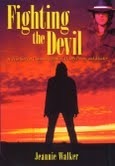 My latest book is
"Fighting the Devil" - A TrueStory of Consuming Passion, Deadly Poison, and Murder
. It is a true crimestory, about the murder of my ex-husband, a Texas millionaire, who wascallously poisoned to death in an unthinkable and horrendous way. It isdepicted the way it really happened with factual accounts, information,recollections and actual dialogue, as well as photos.
My latest book is
"Fighting the Devil" - A TrueStory of Consuming Passion, Deadly Poison, and Murder
. It is a true crimestory, about the murder of my ex-husband, a Texas millionaire, who wascallously poisoned to death in an unthinkable and horrendous way. It isdepicted the way it really happened with factual accounts, information,recollections and actual dialogue, as well as photos.How did you come towrite this particular book?
The sheriff asked me to help with the murderinvestigation because the small county could not afford and did not have thetime or resources to do extensive research. I became a real-life sleuth to helpsolve the murder. I wrote the book tospeak for my ex-husband, who no longer has a voice and to tell the aftermathwith the strange twists and unexpected results.
Do you have a favouritecharacter from the book?
My favourite character is the Sheriff, for whom I dedicatedthe book. He was a small town sheriff, who was very devoted to his job. He diedbefore he saw anyone arrested or justice done in this murder case.
Where can people buyyour book?
My book can be purchased on my website, Amazon, Barnes& Noble, and Smashwords.
What qualities does awriter need to be successful?
I believe in order for a writer to be successful, they musthave confidence in their ability and the patience to persevere.
What's your workingmethod?
Taking the necessary time to research, organize, andoutline before I ever sit down to write the manuscript.
What's the single biggest mistake made by beginner writers?
Expecting overnight orimmediate success.To what extent aregrammar and spelling important in writing?
Yes! It is absolutely essential and vital that there are nogrammar and spelling mistakes in the finished product. Grammar errors andspelling mistakes is a turnoff to readers.
Howmuch do you revise your MS before sending it off?
I delete at least 10 percent from my first draft. Accordingto a writing genius, Mr. Stephen King, the formula for success is 2nd draftequals 1st draft minus 10%.
As a writer of truecrime, a non-fiction area, to what extent do you think genre is useful in thepublishing world?
When one thinks of genre, certain images and themes areconjured. Genre theory is important because it informs the reader as to thesubject matter.
Manyauthors see marketing as a bind. What's your opinion on this, and how do youdeal with it?
It is a given that authors must market their own product.Nobody knows the product better than the original author. The author haseverything to gain from personal marketing, even though at times it can berather time consuming. I take marketingmy book with a grain of salt and just grin and bear it. I believe that when wemarket our own products, then we have the right and the fortune to brag of oursuccess and accomplishments.
What sort ofdisplacement activities keep you from writing?
Household chores, telephone calls, and marketing my bookkeep me from my writing.
What support, if any, doyou receive from family and friends, writing group, or dedicated professionals?
I am blessed in that I receive support from my family,friends and also dedicated professionals, who kindly offer their services andexpertise.
Ispresentation of the MS as important as agents and publishers suggest?
It is imperative to have a professional presentation of theMS.
Howlong does it take you to write a book?
Honestly, it took me 20 years to write this true crimestory. As it was a murder case, certain things had to happen before I was ableto finish it. In real life it can take decades to bring a perpetrator tojustice, no matter how seemingly obvious his or her guilt. I was hoping to havea good ending for my book.
Whoor what inspires your writing?
Other authors inspire me.
If there's a singleaspect of writing you find frustrating, what is it?
Finding the time to sit down and actually put my thoughtsand research into a readable format.
Isthere a particular feature of writing that you really enjoy?
Being able to pick up my own book and realizing I was theone who wrote the book, and was the person solely responsible for making ithappen.
Doyou believe creative writing is a natural gift or an acquired skill?
Some people do have a natural gift for creative writing.But, most people, like myself, have to study and learn the art of creativewriting.
Whatare you writing now?
I am working on my next true story about my Cherokee Indianheritage.
Do you have a website or blog where readers can visit?
I have a website and also a blog. The links are: http://jeanniewalkerbooks.com http://jeannie-walker.blogspot.com
Given unlimited resources, where would you do your writing?
Given unlimited resources, I would still do my writing onmy IMAC computer in my home office.

Published on October 27, 2011 06:30
Stuart's Daily Word Spot: Xeric
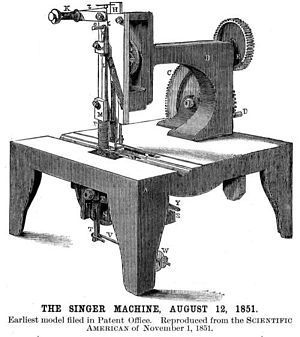 Image via Wikipedia
Image via WikipediaXeric: adjective – in ecology - characterized by dry conditions.
Sometimes a word appealsfor reasons that have nothing to do with its meaning. Xeric was one of thosewords for me. I find the sound almost onomatopoeic, how about you?
'Deserts, as opposed todesserts, tend to be xeric in nature. A xeric dessert would probably be lessthan appetising, but a xeric desert is, well, it's actually a redundancy, a bitlike referring to a wet lake.'
27 October 1811 Theinventor, Isaac Singer, was born. He later founded the Singer Sewing MachineCompany, much to the delight and despair of many women, some released frommanual toil and others reduced to the sweatshops of clothing entrepreneurs

Published on October 27, 2011 03:30
October 26, 2011
Stuart's Daily Word Spot: Wadi
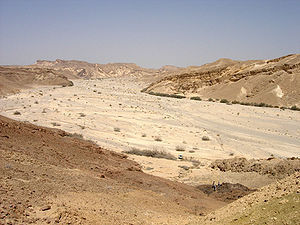 Image via Wikipedia
Image via WikipediaWadi: noun - a rocky watercourse, dry except during the rainy season; thestream occasionally running through such a watercourse.
'Dazzling sun blindinghim, Abdul staggered into the wadi and fell face down amongst the dust andstones, wishing with all his heart that it was the rainy season.'
[image error]
Published on October 26, 2011 05:00
October 25, 2011
Stuart's Daily Word Spot: Vacillate
[image error]
Image via Wikipedia
Vacillate: verb - sway or swing unsteadily; inunstable equilibrium, oscillate, stagger, vary, fluctuate; waver between differentopinions, options, actions; indecisive.
'There is a perception,amongst those of a fixed political view, that the Liberal Democrats vacillateon most points of policy; this is false, of course, as they merely tend to takethe middle path, rather than either of the offered extremes in most things.'
25 October 1961 PrivateEye was published for the first time. I doubt Ian Hislop, the current editor,was even around at that time. It's been responsible for deflating many apolitical and celebrity ego along the way. Long may it continue to do so.


Vacillate: verb - sway or swing unsteadily; inunstable equilibrium, oscillate, stagger, vary, fluctuate; waver between differentopinions, options, actions; indecisive.
'There is a perception,amongst those of a fixed political view, that the Liberal Democrats vacillateon most points of policy; this is false, of course, as they merely tend to takethe middle path, rather than either of the offered extremes in most things.'
25 October 1961 PrivateEye was published for the first time. I doubt Ian Hislop, the current editor,was even around at that time. It's been responsible for deflating many apolitical and celebrity ego along the way. Long may it continue to do so.

Published on October 25, 2011 04:30
October 24, 2011
Stuart's Daily Word Spot: Uglify
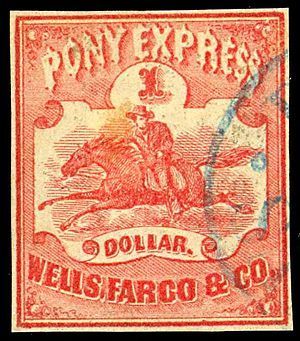 Image via Wikipedia
Image via WikipediaUglify: verb – to make repulsive or ugly inappearance; disfigure.
Sometimes, a word doesjust what it says on the tin. Uglify is an ugly word that serves its purpose inan exemplary fashion, don't you think?
'Jealous of Devika'sapparent attention to her cousin, Girish decided to uglify her by throwingconcentrated sulphuric acid into her face. He, of course, used the excuse thathe was saving his honour by the action.'
24 October 1861 The PonyExpress faced obsolescence due to the first transmission of a transcontinentaltelegraph in the USA.

Published on October 24, 2011 04:00
October 23, 2011
Stuart's Daily Word Spot: The comma, and how to use it.
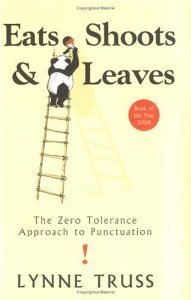 Cover via Amazon
Cover via AmazonThe comma, and how to useit.Perhaps I should startthis piece by determining what a comma actually is: a comma is defined as apunctuation mark that indicates a pause between parts of a sentence, or whichseparates items in a list or groups of figures, etc. In speech, we pause whenthere's a natural break in what we're saying, or when we need to isolate thenext words from those preceding them in order to make our message clear.There's a movement towardopen punctuation at present, promoting the omission of commas in cases in whichthey're considered optional. Whilst such an idea may have some merit, writersand editors need to retain commas, and sometimes even insert additional ones,in order to clarify meaning.Let me give some examplesof how important the humble comma can be.
There is, of course, thefamous example shown by Lynne Truss in the title of her excellent book, 'Eatsshoots and leaves.' and its alternative version, 'Eats, shoots andleaves.' The two sentences have exactlythe same words but the meanings are poles apart. In the first, we have a baldstatement that the subject (unstated in this case) lives on a diet of shootsand leaves; a vegetarian, of course. In the second, we have an altogether moredangerous individual who has a meal, then produces and uses a firearm beforemoving away.
'She sees all the advantagesand wonders about how they might make more of these qualities.'
In this example, the pairing of 'advantages'with 'wonders', which can act as both verb and noun, makes the first part ofthe sentence sound as though the subject, she, observes all the advantages andwonders. In fact, of course, the writer does not intend the reader to make thisconnection and the sentence would be much clearer if written thus: 'She seesall the advantages, and wonders about how they might make more of thesequalities.' We now know, with certainty,that 'she' is both observing and speculating.
It is this ability of thecomma to remove ambiguity that makes it an essential tool in the writer'sarmoury.
'You should be gratefulfor the money and rest.'
Does the writer want hissubject to show gratitude for cash and repose? Or does he actually expectgratitude for the money alone and then suggest that his subject take a rest?The sentence can be read to mean either. A comma would clarify the latter: 'Youshould be grateful for the money, and rest.' This is now clear. As for theformer case, a slight restructuring of the sentence will again make the meaningclear: 'You should be grateful for rest and the money.' Again, the meaning isnow clear.
'The world contains fartoo many people using artificial means to produce children and far too many orphans.'
Here we have the slightlysinister suggestion that people are using artificial means to create orphans.Does this mean some people are actively killing parents so that some childrenwill be orphaned? I think the writer means something entirely different: 'Theworld contains far too many people using artificial means to create children, andfar too many orphans.' Again, thissentence would make more sense and be unambiguous if structured in a betterway: 'The world contains far too many orphans, and too many people who useartificial means to create children.' You may, or may not, agree with thesentiment, but I hope you agree with the clarity of the alternative structures.
'Marilyn opened the door in her nightdress and shrieked as the chill airblew it up her legs.'
It's unlikely Marilyn's nightdress had a door, of course. But the writerhas described the garment as having one. Also, was the door or the nightdressblown up her legs? Not at all clear, is it? Perhaps a better understanding ofwhat actually happened would be derived from: 'Marilyn, in her nightdress,opened the door and shrieked as the chill air blew it up her legs.' Even here,though it's now clear that the nightdress and the door are two separate items,it remains ambiguous whether the chill air blew the garment or the portal upher legs. It isn't always a lack of commas that renders a sentence unclear.Perhaps it might be better stated as: 'Marilyn opened the door and shrieked asthe chill air blew her nightdress up her legs.' Here the comma has been ditchedbut the structure of the sentence makes everything clear.
'Another politician named Nick Clegg broke his word and allowed hispartners to introduce tuition fees against all the pre-election promises he hadmade.'
How many politicians named 'Nick Clegg' are there? And, in what way canyou introduce tuition fees for pre-election promises? The sentence is poor and lacksclarity. Let's try: 'Nick Clegg, another politician, broke his word and allowedhis partners to introduce tuition fees, against all the pre-election promiseshe had made.' We now understand that the writer is lumping Nick Clegg withother politicians and pointing the finger of blame at him, regarding tuitionfees, because he had previously promised not to permit such a thing to happen.
I could go on with examples, and Icould talk about the 'Oxford' comma, but I think you've probably got thegeneral idea by now. I don't want to bore you.
23 October 2001 The firstiPod was released by Apple. Can it really only be ten years ago?

Published on October 23, 2011 03:30
Review of 'Excuse me, My Brains Have Stepped Out', by Pandora Poikilos
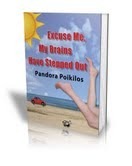 This book, described andpromoted as 'Women's Fiction', reads like a memoir. This, together withinformation given me in a blog interview with the author (use the link if youwish to read it: http://stuartaken.blogspot.com/2011/08/author-interview-with-pandora-poikilos.html), leads me to believe it's a fictionalisedaccount of real events. It's not uncommon, of course, for writers to presenttheir life stories as fiction and, as often as not, it's done to protect thosethey grew up with. All that said, this novel reads like a life story.It's presented largelyas a series of letters to the narrator's father. These include hints at a pastwe never fully learn but which clearly contains distressing events. The lettersalso include passages of opinion on various aspects of humanity, relationshipsand life in general. It's an interesting device and, for the most part, workswell in the context of the book. There were times, however, when I found theauthorial voice a little intrusive and sometimes tiresome. There are editing deficienciesin the text, which is unfortunately peppered with instances of tense change andother grammatical errors. This should have rendered the book unreadable for me,since I find such presentation very irritating, believing that writers shouldlearn the rules before going on to break them. It's testament to the quality ofthe content that the faults didn't stop me reading to the end. The emotional journey wetake with the narrator is profound, disturbing, difficult and, uplifting. Thisisn't a story full of action; there's no apparent sequence of events and noplot. This is an exposition of the very significant barriers and obstructionsto normal life faced by an individual suffering from Intracranial Hypertension;a rare brain condition. Had the author merely set out what had happened toAnya, the subject of the story, it would've probably resulted in a turgid text.But her presentation of events through intimate and touching letters to Anya'sfather, in spite of occasional passages where she tells him things he alreadyknows, renders the tale into a moving and easily digested account.Anya complains aboutthose who say they 'understand' her situation, suggesting that suchunderstanding can be achieved only through similar suffering. I 'understand'her view on that topic. But feel I have some, albeit small, understanding ofaspects of her condition and her fight to achieve normality. Having sufferedME/CFS for eight years (now recovered), I know how limiting certain conditionscan be and I commend her efforts, courage and sheer determination in completingwhat must have been a very demanding undertaking.This is a book that somewill find difficult, some won't finish, but which cannot fail to move those whotake the trouble to accompany Anya on her journey, against seemingly impossibleodds, toward a destination that will leave them in a better place than theystarted. Uplifting and inspiring.
This book, described andpromoted as 'Women's Fiction', reads like a memoir. This, together withinformation given me in a blog interview with the author (use the link if youwish to read it: http://stuartaken.blogspot.com/2011/08/author-interview-with-pandora-poikilos.html), leads me to believe it's a fictionalisedaccount of real events. It's not uncommon, of course, for writers to presenttheir life stories as fiction and, as often as not, it's done to protect thosethey grew up with. All that said, this novel reads like a life story.It's presented largelyas a series of letters to the narrator's father. These include hints at a pastwe never fully learn but which clearly contains distressing events. The lettersalso include passages of opinion on various aspects of humanity, relationshipsand life in general. It's an interesting device and, for the most part, workswell in the context of the book. There were times, however, when I found theauthorial voice a little intrusive and sometimes tiresome. There are editing deficienciesin the text, which is unfortunately peppered with instances of tense change andother grammatical errors. This should have rendered the book unreadable for me,since I find such presentation very irritating, believing that writers shouldlearn the rules before going on to break them. It's testament to the quality ofthe content that the faults didn't stop me reading to the end. The emotional journey wetake with the narrator is profound, disturbing, difficult and, uplifting. Thisisn't a story full of action; there's no apparent sequence of events and noplot. This is an exposition of the very significant barriers and obstructionsto normal life faced by an individual suffering from Intracranial Hypertension;a rare brain condition. Had the author merely set out what had happened toAnya, the subject of the story, it would've probably resulted in a turgid text.But her presentation of events through intimate and touching letters to Anya'sfather, in spite of occasional passages where she tells him things he alreadyknows, renders the tale into a moving and easily digested account.Anya complains aboutthose who say they 'understand' her situation, suggesting that suchunderstanding can be achieved only through similar suffering. I 'understand'her view on that topic. But feel I have some, albeit small, understanding ofaspects of her condition and her fight to achieve normality. Having sufferedME/CFS for eight years (now recovered), I know how limiting certain conditionscan be and I commend her efforts, courage and sheer determination in completingwhat must have been a very demanding undertaking.This is a book that somewill find difficult, some won't finish, but which cannot fail to move those whotake the trouble to accompany Anya on her journey, against seemingly impossibleodds, toward a destination that will leave them in a better place than theystarted. Uplifting and inspiring.[image error]
Published on October 23, 2011 02:39
October 22, 2011
Stuart's Daily Word Spot: Tableau
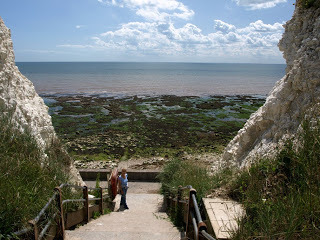 Tableau: noun - a picture; used figuratively - a presentationor description in picturesque form; a table, schedule or official list; groupof people and things grouped to form a picturesque scene; used theatrically – astatic representation of the action at a critical stage in a play; also, thestage direction for this; sudden striking of a dramatic situation; in cards - thearrangement of the cards when laid out for a game of patience.
Tableau: noun - a picture; used figuratively - a presentationor description in picturesque form; a table, schedule or official list; groupof people and things grouped to form a picturesque scene; used theatrically – astatic representation of the action at a critical stage in a play; also, thestage direction for this; sudden striking of a dramatic situation; in cards - thearrangement of the cards when laid out for a game of patience.'The players stopped theiraction and abruptly struck a tableau in which their individual postures andexpressions interacted with their group positions to express the shock, horrorand disbelief at the sudden, and apparently inexplicable, killing of the leadcharacter.'
Pic: Valerie at the foot of the steps leading to the northern beach at Bridlington, East Yorkshire.

Published on October 22, 2011 04:30
Cleaning up
With my daughter at university and her room now available (at least for a short spell) as a dumping ground, I decided to clear out my study for the first time in 11 years. In the process, I had to remove every book from the shelves that line two walls. Guess what? I discovered books I had bought and never read and others I'd forgotten I'd read. Once the room was re-carpeted, painted and generally spruced up again, I replaced everything, having discarded a good amount of junk along the way. As part of the process, I decided to catalogue my remaining books (I say 'remaining' because, when I broke up with my first wife over 25 years ago, I had to leave about half of my then library behind). It's been a fascinating exercise. I'm now going through the list, a bit at a time, to add many of the books to my list here on Goodreads.
I've rediscovered old friends and found new ones I've yet to explore. It's a worthwhile process and one I'd commend to others who have a reasonable collection.
I've rediscovered old friends and found new ones I've yet to explore. It's a worthwhile process and one I'd commend to others who have a reasonable collection.
October 21, 2011
Stuart's Daily Word Spot: Wreak or wreck?
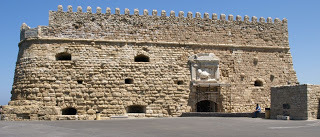 Wreak or wreck: Wreak: verb – expel, drive away;express a feeling, especially anger; punish, injure or harm someone; avenge someone;vindicate a cause by an act of retribution; take or inflict vengeance on orupon someone; cause harm, damage, etc., frequently in 'wreak havoc'; deal ablow. (Wreak is often followed by 'on' or 'upon')
Wreak or wreck: Wreak: verb – expel, drive away;express a feeling, especially anger; punish, injure or harm someone; avenge someone;vindicate a cause by an act of retribution; take or inflict vengeance on orupon someone; cause harm, damage, etc., frequently in 'wreak havoc'; deal ablow. (Wreak is often followed by 'on' or 'upon')Wreck: verb - washashore; reduce a structure, vehicle, etc. to a ruined or shattered condition byforce or violence; destroy; cause the wreck of a vessel; bring someone todisaster or ruin; cause the ruin or destruction of a system, etc.; severelyupset or impair someone's health, nerves, etc.; frustrate, thwart; prevent thepassing of a measure; suffer a shipwreck.
These words have no sharedetymological origin but often appear to be confused. You can 'wreak havoc' by'wrecking' something, but they are not the same thing.
'Influenced by the cultureof his tribe, Mohammed swore to wreak vengeance on his brother for daring to speaksoftly to the woman he had decided to wed.'
'George, if you don't stoppounding your sister's doll with your hammer, you're going to wreck it.'
Pic: Venetian fortress on Crete.
[image error]
Published on October 21, 2011 02:30



